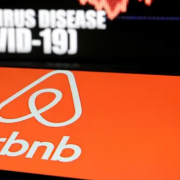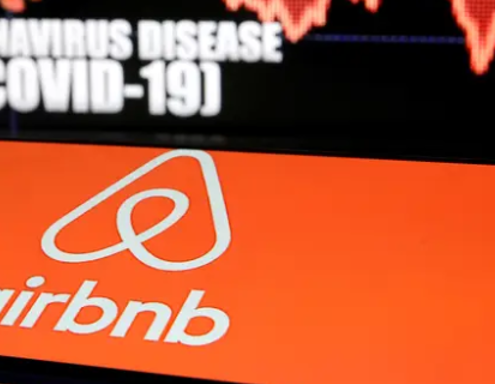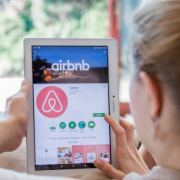The Mishap of the Century
The dumbest feeling person in tech right now has to be CEO and Co-Founder of Airbnb Brian Chesky.
The short-term accommodation platform was valued at $31 billion in its last funding round in 2017 and this year was the year that Chesky and Co. had earmarked to go public.
The company was the beneficiary of a secular tech tailwind aided by missteps from a dinosaur hotel industry and carved out a unique product linking hosts and travelers for the purpose of filling in short-term accommodation.
Skirting regulation was the cherry on top.
Airbnb pockets a commission of 6% of the total booking amount, meaning they are overwhelmingly reliant on volume to build sales.
There are more than 7 million homes in 220 countries and regions that have earned over $80 billion since the company started.
Like many things in life – a window of time is all you get.
Last year was that window of time when a smorgasbord of private tech unicorns delivered public markets new tradable assets such as Uber, Peloton, Pinterest, and Lyft.
Even though these stock shares performed worse than expected, it offered long time employees and shareholders a chance to finally cash in.
After going public, any loss from underperforming shares would be absorbed by the public.
Airbnb’s management even had enough time to observe ex-CEO of Uber Travis Kalanick sell off $1.7 billion in stock following the end of the company’s IPO lockup period highlighting the ample period of time Airbnb had to come to the public markets if they wanted to in 2019.
The 2019 loss of $322 million in the first nine months was no big deal and mainly attributed to ramping up marketing.
Then the coronavirus suddenly took the world by storm and everything changed.
Brian Chesky’s arrogance has cost his shareholders $20 billion.
What about the future?
The next “disruptor” of Airbnb could appear in 24 months as well – who knows?
Operations will cost more in 24 months and not less, and a healthy supply of units is not guaranteed to be the same if hosts mass foreclose on properties or a mirror image competitor who attempts to undercut Airbnb appears.
It is rumored that close to 1 out of 3 Airbnb hosts are reliant on their monthly Airbnb income to pay mortgages, which would suggest a poor formula in this type of souring economic climate.
This entire short-term rental industry buttressed by tech platforms could be due for a wholesale washout.
How bad is the situation now?
Airbnb took a hit to the tune of over $50 million in booking revenues over the past several weeks in strategic cities that are close to coronavirus hot zones.
The home-sharing startup’s booking revenues cratered across 17 key international cities over a span of five weeks starting at the beginning of February, and the pain isn’t over yet as cities and countries go into full-blown lockdowns and crisis mode.
At first, it was just China, whose Airbnb’s booking revenues dropped 25%, losing $17.6 million, but that was just the canary in the coalmine.
And that poor number comes in the context of expected growth of roughly plus $30 million if booking revenues had continued growing at the same pace of nearly 35% the firm saw in those markets over the same period last year.
In total, the China business registered a negative swing of nearly $48 million because of the virus.
Even though the virus originated in Wuhan, the contagion quickly spread to Shanghai, Beijing, Seoul, Singapore, Hong Kong and Tokyo wreaking havoc on Airbnb listings.
Western cities are going through the same barrage of Airbnb cancellations and non-bookings in the tourist meccas of Paris, London, Prague, Barcelona, Milan, Rome, and New York.
Airbnb has now enacted an extenuating circumstances policy allowing guests to cancel eligible reservations without charge, and the host is required to refund the reservation, irrespective of the previously contracted cancellation policy.
I unquestionably blame Chesky for the bleak situation Airbnb is grappling with in terms of bringing the company to public markets.
They secretly filed for an IPO in 2020 at only half the valuation Airbnb fetched pre-virus.
He failed to do what many unicorn leaders accomplished, which was, by hell or high water, transfer risk to the public market during the late innings of the economic cycle (or before) which we can almost convincingly say ended in January 2020.
Was it worth eking out the extra year or two of growth for another 10% “growth” of incremental value?
The greediness has been exposed and now briskly punished.
Now the company has no room for error while going into full-on damage control for the foreseeable future.
The economic mayhem has put a premium on tech companies with positive cash flow, high margins, competitive advantage, and profits.
A company like Microsoft perfectly illustrates this character set while Airbnb just clung onto its start-up growth model for too long when it easily had the chance to become profitable two years ago.
Avoid Airbnb shares when they hit the public markets – no need to care for damaged goods.
My bet is that ultimately, Google will use this crisis to steal Airbnb’s business and there is nothing they can do about it. They are in the process of developing a property rental platform eerily similar to Airbnb.





